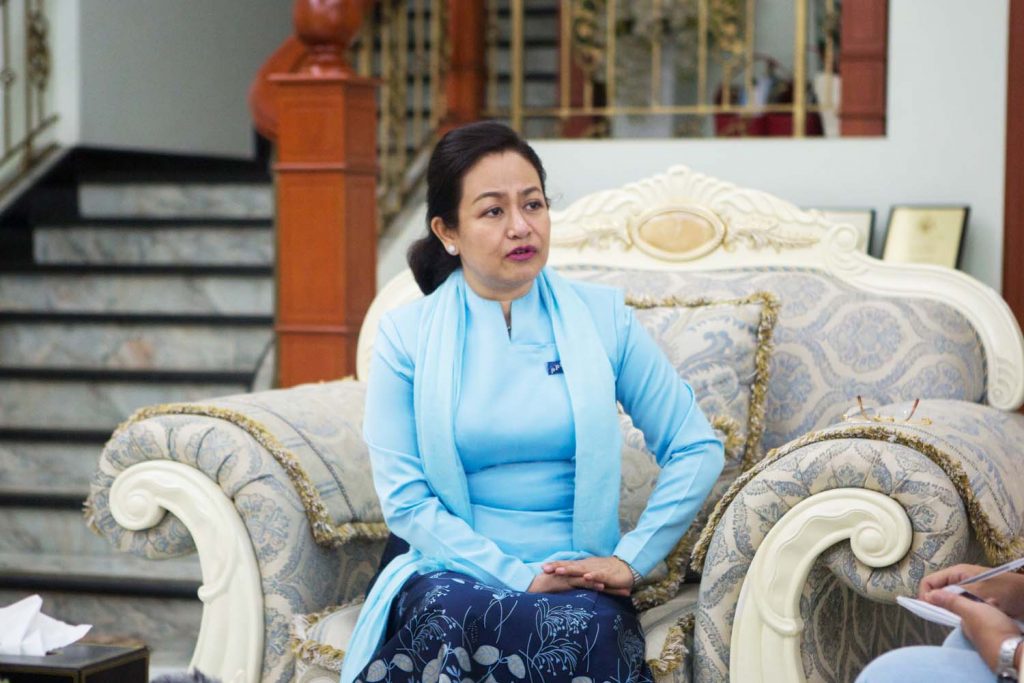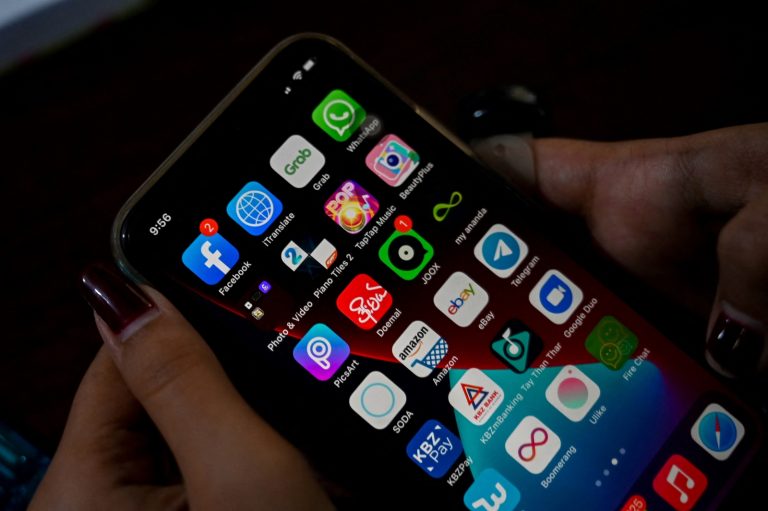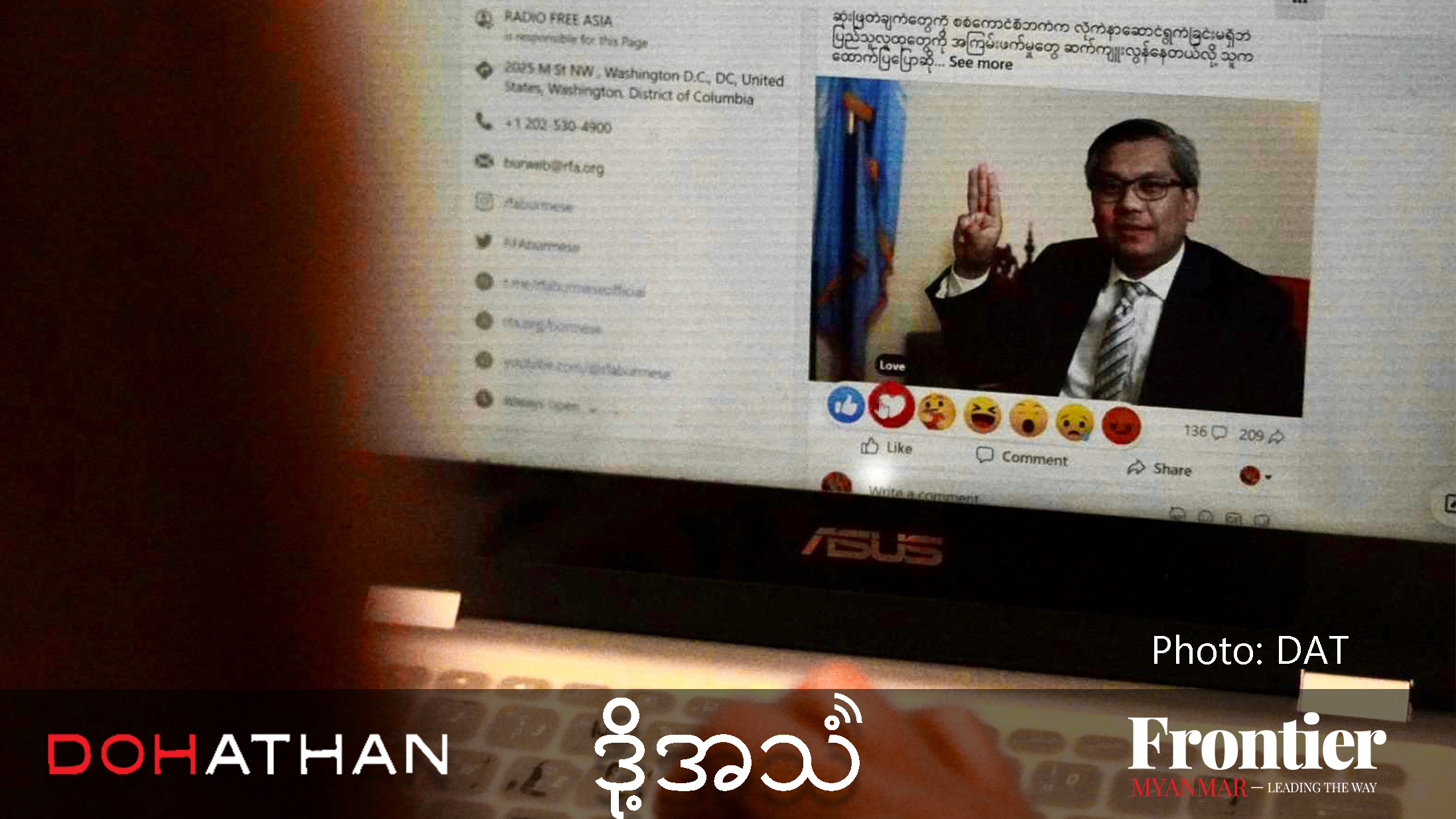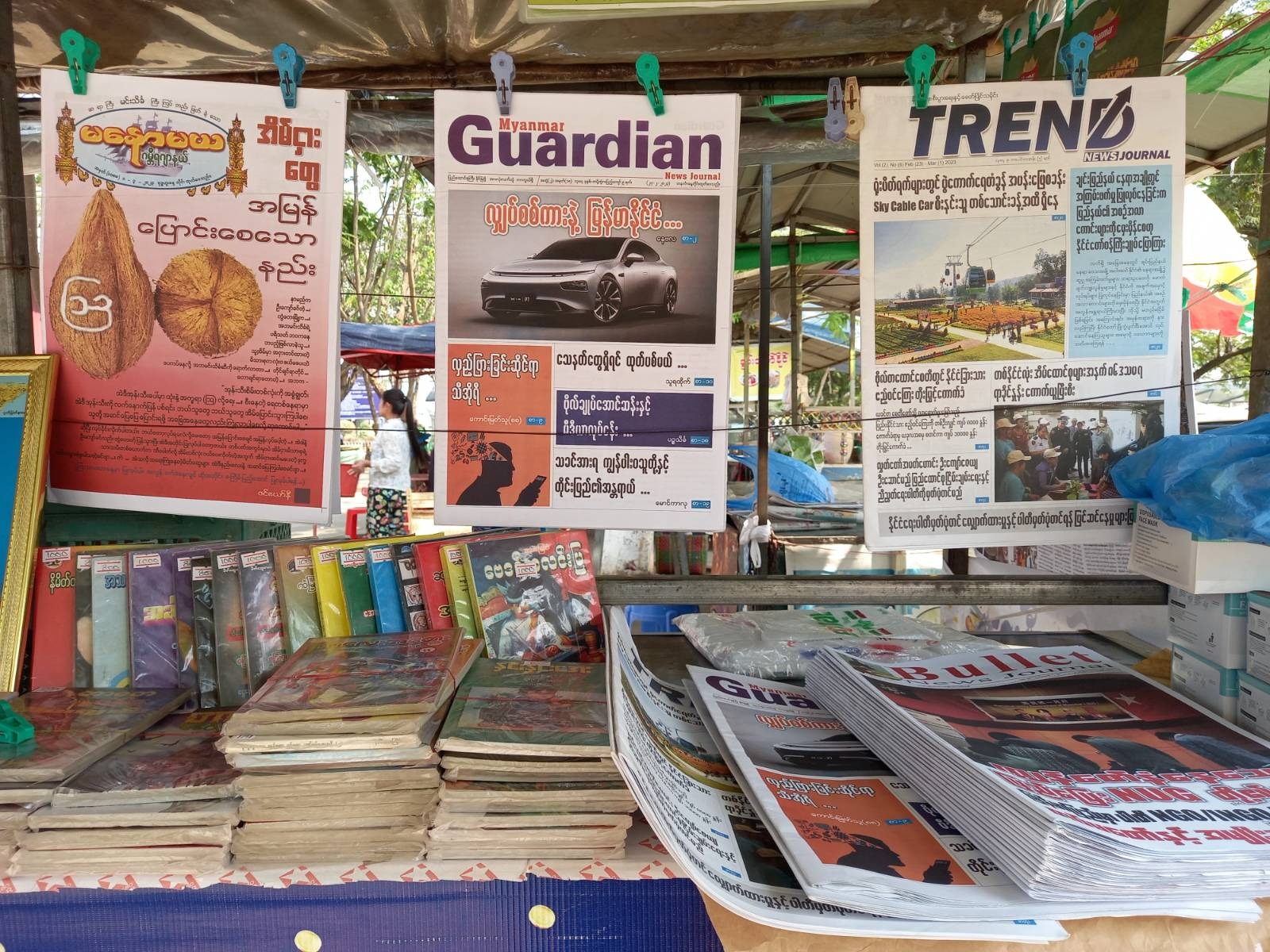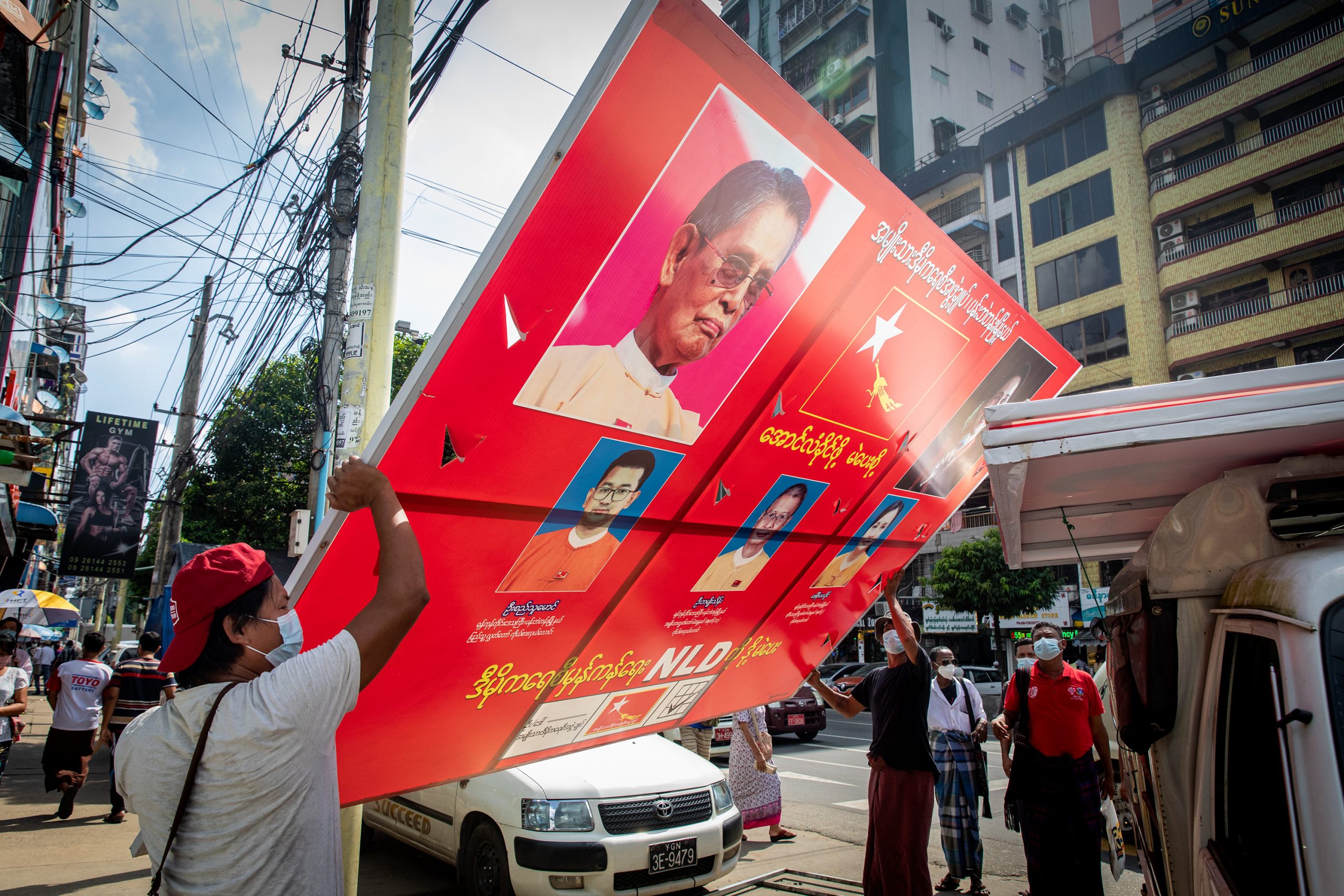Pyithu Hluttaw lawmaker Daw Thet Thet Khine resigned from the ruling National League for Democracy in October last year and formed the People’s Pioneer Party, which will be contesting this year’s general election.
From a prominent gem and gold trading family, Thet Thet Khine was elected as the NLD’s representative in Yangon’s Dagon Township in 2015. However, she later quit the party after its central executive committee suspended her membership of the Dagon chapter’s executive committee in August 2018 for criticising the government.
Frontier’s Ye Mon sat down with Thet Thet Khine on June 25 for a wide-ranging interview about the PPP and the election.
What preparations is the PPP making for the election?
Although our party is young, it is attracting well-educated people with experience. I only choose such people to be members.
A carefully-drafted constitution is the foundation of our party, which will be programmatic with a definite policy and work plan.
Township offices are important basic organisations for a political party and we have opened 67 so far and another 90 will be opened soon. More than 110 offices will have been opened before the election.
We are also forming township executive committees, which are inviting applications from candidates. We have so far received about 200 applications for constituencies throughout the country. We will not be able to compete in all of the 110 townships where we have opened offices, but we expect to field candidates in more than 80 townships.
Which constituency will you contest?
I have not decided, but I will compete for a seat in the Pyithu Hluttaw.
Leaders of the NLD are advising voters to vote for a party that can form government. Why should voters support small parties?
We do not regard our party as being small. Our party is eight months old, but it has offices in more than one third of the country’s 330 townships and will contest a quarter of the constituencies. You cannot consider only the age of the party. The knowledge, wisdom and experience of party members are more important than the party’s age.
I don’t accept the advice that voters should vote for a party that can form government. If the people vote only for the party that can form government, the Hluttaw will be dominated by one party and it will be no different from totalitarianism.
The advice that people should vote for the party that can form government is not compatible with democracy. The essence of democracy is a multi-party system and the existence of an opposition. If an incumbent party becomes too dominant, an opposition party can function as a check and balance.
How do you assess the performance of the Hluttaw?
The Hluttaw defers to the government too much. The NLD has too much control over its MPs; individual opinions are not allowed. There is only the opinion of the party, which is too lenient towards the government. The Hluttaw favours the government and allows it to do as it pleases. There is almost no check and balance between the administration and the legislature.
We have had two elected governments [since 2010]. In the NLD government, the role of the party is too strong and there is no difference between the government and the party. The NLD exercises more control over its MPs than is needed. I experienced this.
Many parties have formed alliances. Who are the PPP’s political allies?
For the time being, we would like to have ethnic parties as our political allies. We want to make alliances with ethnic parties that are strong in the states. Our party is contesting mainly in the regions so there is little competition with ethnic parties. We want to make friends with them.
Since the NLD government took office, Myanmar’s ranking on the annual World Press Freedom Index has dropped several places. What’s your opinion about freedom of expression in Myanmar?
The decline in press freedom is undeniable. Individual citizens as well as the news media are concerned and dare not speak out as freely as they did previously. If you want to nurture democracy you must acknowledge the need for press freedom. The NLD led a democratic revolution and has become government with the support of the people. I was surprised by how the NLD changed when it gained power. This should not be.
Invest in Frontier Myanmar’s independent journalism by becoming a member. Sign up here.
Many people are being prosecuted for criminal defamation under section 66(d) of the Telecommunications Law and with causing or intending to cause fear or alarm to the public under section 505(b) of the Penal Code. Should these laws be reformed?
Yes, these laws are mainly used by organisations that have power. The application of these laws is different when used by a powerful organisation … and this highlights the need to reform them. In response to a question from a foreign journalist in 2015, I said the government’s first priority should be reform of the judicial sector. The judiciary remains under government control. It is not independent. It is a job left for the next government.
It was assumed when the NLD took office that it would abolish the Ministry of Information. What should be the ministry’s fate under the next government?
Reform is needed but we should not get rid of the Ministry of Information immediately. We need to be subtle when reforming this ministry. The role of state-owned media should be reduced and private sector media should be strengthened.
What is your party’s view on the internet blackout that has been affecting parts of Rakhine and Chin states for more than year?
It is related to security concerns. Another problem is that people cannot decide what news is fake and what is real. Anybody can say what they like on Facebook. Most users do not use their real names and do not take responsibility for their posts. I think the internet has been cut off in some townships because of concern that inappropriate use of Facebook might worsen the security situation. At the same time, it is also blocking the right to information. It cannot be said that the blackout is 100 percent right or wrong. It is a difficult question.
How will COVID-19 affect your party’s preparations for the election?
If the Union Election Commission wants the 2020 election to be free and fair, it should postpone the election. Everything stopped for three months because of COVID-19 and political parties could not do anything until now. There is no obligation to hold the election in November. There will be more time for people to decide if the election is postponed.
How does your party raise funds?
As the party is new, we are relying on monthly fees from our central executive committee and rank and file party members. Our election candidates will be required to cover the cost of their campaigns.
However, we also want to nurture young candidates. So if a young person deserves to be a candidate, the party will bear the cost of their campaign.
If candidates have to cover their own expenses, does it mean that only rich people can run for office?
Every candidate must try to compete using the least amount possible. Because this is during the COVID-19 crisis, nobody is able to use much money. Also, people will not vote for a candidate just because they use a lot of money. The quality of a candidate is more important.
Editor’s note: This interview has been edited for length and clarity.


